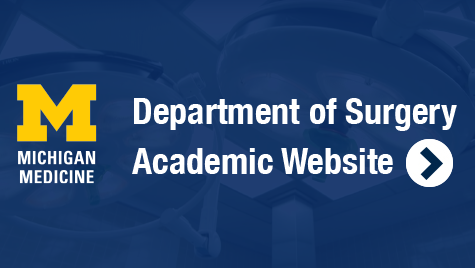Optimally trained surgeons are critical to caring for patients, and we remain unwavering in our belief that no patient should ever have to wonder about the competence of their surgeon. At the heart of the many faculty surgical education research initiatives at U-M lies our Center for Surgical Training and Research (CSTAR), which focuses on four key areas:
- Ensuring that surgical trainees are competent
- Evidence-based curriculum development
- Culture and leadership development
- Using science to inform national surgical education policy
Our work spans many disciplines, drawing on work in areas such as health services research, simulation, education, cognitive psychology, anthropology, data science and engineering. Our research has helped shape surgical education internationally. Assessment and communications tools developed by C-STAR investigators are broadening and deepening conversations around competency- and outcomes-based learning and teaching. Participation in several large, national collaborations further strengthens these efforts.
- Fellowship Program: Fellowships for residents and students are preparing the next generation of surgical education research scholars.
- Residents as Educators: This novel two-year curriculum helps residents develop skills to effectively teach and mentor medical students as the residents transition into faculty roles.
- SIMPL: This app is used by around the world by thousands of surgical faculty to assess and provide feedback to surgical trainees.
- OpTrust: This innovative program studies the process of how residents gain competency in the operating room and works to further hone these interactions.


